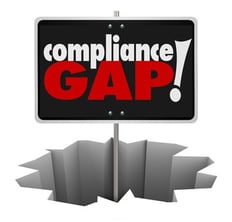 Most states require charities soliciting from their residents, corporations or government entities to register to solicit. Charities that have failed to register in the past are often concerned about the consequences of registering now or in the future, especially if they have been soliciting for many years. In a few states, this is a legitimate concern; however most states are simply happy and satisfied to see that you are coming into compliance as a charity soliciting in their state. Most states tend to be more concerned with your charitable organization actually registering and staying compliant going forward. Also, in the few states that can and do fine charities for late registrations, the fines are usually capped or there are ways to avoid late registration fees and penalties.
Most states require charities soliciting from their residents, corporations or government entities to register to solicit. Charities that have failed to register in the past are often concerned about the consequences of registering now or in the future, especially if they have been soliciting for many years. In a few states, this is a legitimate concern; however most states are simply happy and satisfied to see that you are coming into compliance as a charity soliciting in their state. Most states tend to be more concerned with your charitable organization actually registering and staying compliant going forward. Also, in the few states that can and do fine charities for late registrations, the fines are usually capped or there are ways to avoid late registration fees and penalties.
Illinois Late Fees: Not Applicable When No Solicitation Has Occurred
In Illinois, for charities that have existed at least a few years, the state presumes your organization has been soliciting in Illinois without registering and therefore charges late registration and annual report fees going back three years. Illinois will impose a one-time $200 late registration fee and will require the filing of three annual reports on form AG990-IL (Charitable Organization Annual Report), each of which will be considered late, resulting in a $100 late fee. The late annual report fees, when combined with the late registration fee, result in a total late fee of $500. In Illinois, this is usually the maximum exposure for organizations that are registering late and have solicited in the past in the state. However, if your organization has not solicited in Illinois for the past three years, you may write a letter to the state indicating this and further stating that your charitable organization will not solicit in Illinois until properly registered to solicit. By writing this “non-solicitation letter,” Illinois will waive the late registration and annual report fees.
Pennsylvania: Form Used Can Make a Big Difference
In Pennsylvania, if you file an initial charitable registration on the Pennsylvania-specific form BCO-10 (Charitable Organization Registration Statement), questions 8 and 9 on the form ask when your organization started soliciting in Pennsylvania, and when your organization first received more than $25,000 in contributions in a fiscal year (includes contributions received both within and outside Pennsylvania). Pennsylvania requires that these questions be answered and will use the dates your organization provides to impute a late registration fee of $25 per month. For organizations that solicited for a few months, the late registration fee is not a big deal, however for organizations that have solicited for ten years, the late registration fee can be quite substantial. However, Pennsylvania will allow the use of the Unified Registration Statement (URS) to file an initial charitable registration. This form does not ask exactly when your charity started soliciting in Pennsylvania and will accept a more vague description of your solicitation activities in the state. Thus, organizations that have solicited in the past in Pennsylvania can use the URS to register and avoid a late registration fee.
Most States Don’t Impose Late Fees
Other states like California, New York and Wisconsin ask and require very specific answers about solicitation activities. At this time, however, most states that do ask about past solicitation activities do not impose late registration fees on organizations. Sometimes, as in California and Massachusetts, the states will ask for past registration filings and fees, but most states are satisfied with just the initial charitable registration and ongoing compliance in the future. Of course, most states do have the legal authority to impose late registration fees or fines, but most do not do so at this time.
Getting Compliant Can Cost Far Less Than Getting Caught!
As you can see, there are some penalties and late fees that a charity will have to deal with for not registering to solicit in the past, especially in a handful of states, but, with proper guidance, most organizations can comply with state charitable solicitation statutes and register with relatively minor consequences to their organizations. Unfortunately, the resolution is not as easy with respect to organizations that have been found to have solicited in a state while not being properly registered. The same is true for organizations that have registered, but then fail to properly maintain their registrations going forward. A single administrative proceeding opened by any state against a charitable organization can result in fees, fines and legal expenses in the thousands of dollars, easily matching or exceeding the total fees and expenses of registering to solicit nationwide. Hopefully, most charities will rightfully conclude that it is better to “bite the bullet” and get compliant in all applicable states as soon as possible rather than take the chance that any state will learn that the organization has been soliciting without being properly registered.
This article is provided for informational purposes only and should not be considered, or relied upon, as legal advice.

